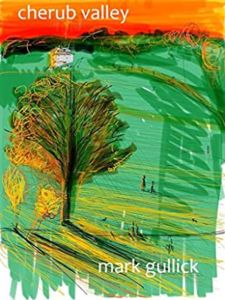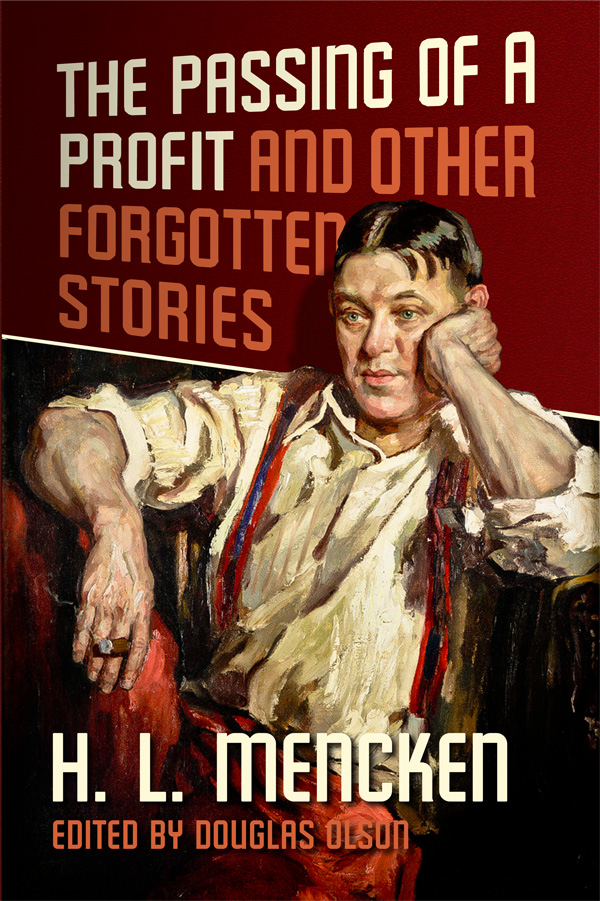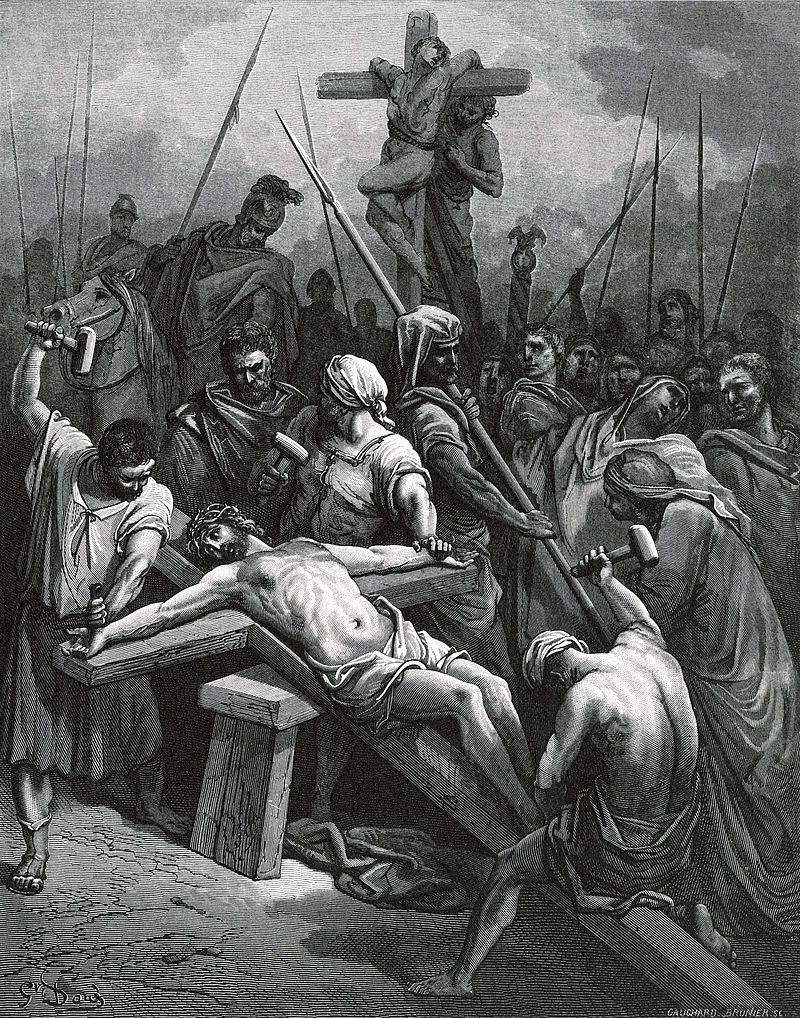Defining the Far Right

Nick Lowles, founder and Chief Executive of the antifa organization Hope Not Hate. (Image source: Gov.uk)
2,616 words
The first point in occult science is by no means the advancing of assertions or opinions which are to be proven, but the communication, in a purely narrative form, of experiences which are to be met with in a world other than the one that is to be seen with physical eyes and touched with physical hands. — Rudolf Steiner, An Outline of Occult Science
The meaning of a word is its use in the language. — Ludwig Wittgenstein, Philosophical Investigations
The British political and media class uses the term “far Right” in the same way the Biden administration and the American mainstream media warn of the supposed threat of “white supremacy.” Both establishments require an enemy at the societal level to distract from any actual threats (which they have pretentiously started to call “existential” threats), and as neither white supremacists nor the far Right exist in any meaningful sense in either country, their respective political/media complexes have had to invent them.
This is not merely a media affair but also, and more importantly, a philosophical one, particularly in the area of language. As we shall see, descriptions of “white supremacists” and “the far Right” are based not on definition, but on association. When Biden or CNN accuse half of America of being white supremacists, the mental image conjured up is the Ku Klux Klan, the Aryan League, and Birth of a Nation — a twilit world in which American History X is a documentary, not a work of fiction. When the British political and media class use the term “far Right,” the phrase is associated in the British mind with the skinheads of the National Front in the 1970s. This media-produced image is perfectly captured by the late Jonathan Bowden, writing in an essay on Ezra Pound:
The radical Right is regarded as a trajectory that has no connection with civility, or with art, or with culture. It is a tendency connected to thuggery in the mass mind and in the mass media mind.

You can buy Mark Gullick’s novel Cherub Valley here.
The caricature of the “far Right” in Britain is often described as “knuckle-dragging.” Association is paramount, definition nowhere to be seen. Let’s see this associationism in action.
Earlier this year, Ex-Prime Minister Rishi Sunak made a speech warning of the dangers of Islamism after a maverick Left-wing politician won a local election on the Gaza ticket. “Islamist extremists and far-Right groups are spreading a poison,” Sunak said earnestly, further conflating the two by calling them “two sides of the same coin.” London Mayor Sadiq Khan described those protesting his ULEZ (ultra-low emission zone) policy outside the building in which he was speaking as “part of the far Right.” Not only this, Khan added, but some of those keeping far-Right company “are COVID deniers, some are vaccine deniers, and some are Tories.” In 2018, then-Assistant Commissioner of London’s Metropolitan Police Force (the Met) Mark Rowley was also head of counter-terrorism. In a speech to the think tank Policy Exchange, Mr. Rowley said that “Islamist and Right-wing extremism is reaching into our communities through sophisticated propaganda and subversive strategies creating and exploiting vulnerabilities that can ultimately lead to acts of violence and terrorism.” Rowley is currently Chief Commissioner of the Met.
The Irish government regularly refers to those protesting against migrant centers being placed unceremoniously in their small rural towns as “far Right.” The BBC likewise talks of the “resurgence of the far Right” in Europe when they disapprove of an election result.
Finally, and again earlier this year when his party was still in power, Communities Secretary Michael Gove — a foolish title for a foolish man — decided the best way to combat extremism was to change its definition. He specifically named five groups, three Islamic organizations, and two from the “far Right,” as though this somehow represented a ratio of threat levels:
Across this House, I am sure that we would agree that organizations such as the British National Socialist Organisation and Patriotic Alternative, who promote neo-Nazi ideology, argue for forced repatriation, a white ethnostate and the targeting of minority groups by intimidation, are precisely the type of groups about which we should be concerned and whose activities we will assess against the hew definition.
Don’t like your old definition? Change it to a new one!
Writing about Khan’s comments in The Daily Telegraph, GB News presenter Camilla Tominey summarizes the reasons for this insistence on the use of the term “far Right” (or any variant) to a nicety:
The casualisation of terms like “far-Right” and “alt-Right” is of course designed to move the centre ground further to the Left by making mainstream views, often ones held by the majority of the population, appear extremist.
The problem is one of a lack of definition. As with “hate speech,” “Islamophobia,” “white privilege,” and the ubiquitous “racism,” the term “far Right” has no consensually-agreed meaning, which is what definition is. If a term in common usage is not defined, we are either in the position of Wittgenstein’s player of private language games, or we are in Wonderland with Alice when Humpty Dumpty informs her that “when I use a word . . . it means just what I want it to mean, neither more nor less.” Orwell unpacked the consequence of the lack of fixity in defining a word in “Politics and the English Language” with reference to “fascism,” a term still in vogue today. “The word Fascism,” he wrote in 1946, “has now no meaning except in so far as it signifies something not desirable.” Definition is anathema to many on the Left, and if they ever get around to book-burning, the dictionary will be the first volume consigned to the flames.
The replacement of definition with association serves two purposes. Firstly, it allows toxic tropes to dictate the image of the far Right. Secondly, it does away with the need for definition and the relative conceptual stability it brings with it. The Left’s inability to define the terms they use for those they oppose is not mere woolly thinking. Definition is anathema to them because it regulates the terms of a debate they have no intention of having. To define something places it in the objective world which is and must be communitarian, or communication would not be possible. This is why the Left use language in an elastic, malleable way.
Definition looks straightforward, but internal bifurcations make it anything but. Dictionary definition looks as though it is an ultimate arbiter as it explains the meaning of a word or words by reference to other words. But there is a strange internal slippage at work which does not allow definition to settle in a fixed position. John Locke, the eighteenth-century English philosopher whose political theories influenced the American Declaration of Independence (itself a document reliant on definition), writes the following concerning the problem of dictionary definition in his Essay Concerning Human Understanding of 1689: “For if the Terms of one Definition were still to be defined by another, where at last should we stop?”
Definition has different applications and requires recognition of its differing functions. Both virtue and the triangle can be defined, and when Plato asks in the Euthyphro “What is virtue?”, we can see that a definition is what is sought, but not in the same sense that Plato defines a geometrical figure in the Meno. So already we have at least two types of definition, one which is open to dispute, and one which is not. Virtue may be defined today in a very different way than it was in first-century Rome, but a triangle may not. Virtue may be defined differently depending on whether you are inquiring in Tehran or London, but a triangle is a plane figure bounded by three sides wherever you are.
The difference between these two species of definition looks unimportant, but it is quite the opposite. A common category mistake seeks to boost synthetic definition to the status of a priori. It is a very common mistake to expect truth functions which operate entirely separately of one another to be confounded as though they were one process. One regularly hears intelligent people stating that someone who disagrees with them is “acting illogically” or “not using logic.” That is because the value system in which they are debating or defining is not one where logic properly applies. The charge of illogicality simply means the accused is not in agreement with the accuser.
In philosophical terms, an unwillingness to define terms denotes an emotivist use of language in which words and their application aim not at explaining the nature of a person, object, or event, but reduce to a simple act of approval or disapproval on the part of the speaker. This reductive act of simple, personal preference is also known as the “Boo/Hooray theory.” As we are dealing with speech and language, it is instructive to reread the great British philosopher and speech act theorist, J. L. Austin.
Austin begins by dividing speech acts into two, the constative and the performative. Constative statements are made with the expectation that they are to be considered as true, performative statements as suitable only to be apprised in some other way. Thus, to say that a person is gay can be a valid description of that person as a homosexual or an insult hurled in a playground. In the first instance, the term is used constantively; in the second, performatively. To call someone “far Right,” the term being undefined, has no constative substance, and is a purely performative utterance.
Austin’s second division of speech acts is tripartite. A statement (and a single word is still a statement) is always locutionary, as any utterance understood by any hearer must be simply by virtue of its being made. The subsequent pair are the revival of divisions within classical rhetoric. The illocutionary act is the informational status of the statement: Is it a simple observation, a question, a request? Finally, the perlocutionary function of a statement is its intended outcome, the effect the speaker intends to have on the hearer, be it agreement, an answer, or assistance. Shouting “Get out!” at someone is always a locutionary act whatever its inflection or intention. Whether the command is due to disgust with the person or because the house both parties are in is on fire is an illocutionary consideration. The intention to persuade the other person to leave is perlocutionary. In Austinian terms, the charge made against someone that they are “far Right,” while necessarily locutionary and certainly perlocutionary, simply skips the illocutionary. It has no informational status.

You can buy H. L. Mencken’s The Passing of a Profit and Other Forgotten Stories here.
The elasticity of what constitutes a “far-Right” personality is not, however, directly foisted onto the populace by government. Instead, they outsource the task in the same way they outsource social media censorship to the Big Tech platforms that provide the service. In the United Kingdom, the main regulator is an organization called HOPE Not Hate (HNH).
HNH are the British equivalent of America’s Anti-Defamation League (ADL) and Southern Poverty Law Center (SPLC). They produce an annual report entitled State of Hate, in which they exhaustively list figures which they associate with the far Right. As we have seen, there is no working definition of the term, and as it functions as a pure Austinian perlocutionary, it is a simple blanket pejorative. HNH are at liberty to include anyone who contravenes rules they themselves have introduced. In common with many commentators on the political Left, their working premises are ex cathedra.
All that said, HNH do at least acknowledge the theoretical necessity of definition. In the editorial preface to the 2024 report by the CEO of HNH, Nick Lowles, we read that:
This year’s State of Hate report focuses heavily on the Radical Right, a political phenomenon we define as right-wing populist in outlook, with strongly anti-immigration and anti-elite rhetoric, but differs from the traditional far Right in that it advocates an illiberal democracy rather than overthrow of the system itself.
This seems a cautionary move, indicating that HNH realize that simply firing off accusations of a person or body being “far Right” is no longer sufficient to taint the full range of dissident commentators and politicians they require to stay in business. In the paragraph following that quoted, two representatives of the “Radical Right” are journalist Douglas Murray and polling expert Matthew Goodwin. HNH can see that branding these two level-headed and relatively moderate men as “far Right” will not work. This caveat is, however, rather mannered in comparison with the tagline for HNH’s appeal for funding, which reads:
We take action on and defeat nazis [sic]. Will you step up with a donation to ensure we can keep fighting the far right?
The conflation of the far Right with Nazis is hardly news, but might be considered extreme in what is effectively a government watchdog. This shift in focus in this year’s report shows that HNH are alive to the intractability of applying the term “far Right” to every shade of conservative opinion. Put simply, people are starting to notice, and HNH’s credibility is paramount to their existence.
We are in the arena of rhetoric, and as Austin shows us, language has more uses than clarification by definition. It is also used to confound and to confuse. Plato gives a description of those against whom it is difficult to argue in the Theaetetus:
If you ask any of them a question, he will produce, as from a quiver, sayings brief and dark, and shoot them at you; and if you inquire the reason of what he has said, you will be hit by some other new-fangled word, and will make no way with any of them, nor they with one another; their great care is, not to allow of any settled principle either in their arguments or in their minds, conceiving, as I imagine, that any such principle would be stationary; for they are at war with the stationary, and do what they can to drive it out everywhere. [Italics added]
What can Plato mean if not that his supposed opponent resists the concept of definition?
There has been very little philosophical analysis on the Right of how and why a small but vociferous minority have managed to impose language usage on the majority. Studying contemporary politics and informing ourselves with dissident literature from the past is necessary for the dissident Right, but a philosophical grounding is, I believe, lacking in the resistance movement. It is very difficult, outside of Counter-Currents and The Occidental Observer, to persuade editors that philosophical articles are as essential to our understanding of the enemy as any amount of social commentary.
And so we will continue to be labelled as “far Right” in Britain and “white supremacists” in America, along with a host of other perlocutionary fortune-cookie mottoes, examples of what I call “placardism.” The question is how much this will fool how many people, and for how long. The American Right has seen four years of what the Left can do to its country, itself a relatively recent experiment in democracy, as de Tocqueville pointed out. The British, founded, as their league of nations is, on centuries of tradition, are about to find out what five years of even more self-hating and destructive socialism can do.
In the meantime, we must dust off our volumes of philosophy. As a child said in a garden long ago, “Take up the book and read.” St. Augustine, hearing the ghostly but persuasive voice, opened his Bible and never looked back at his old life. He redefined himself, as we must, straining our ears across the centuries to catch an echo of the same voice.



